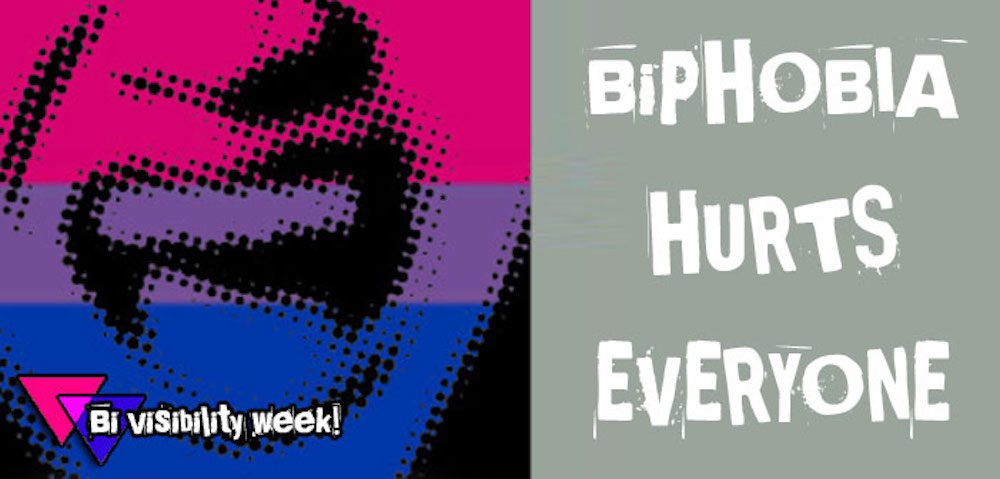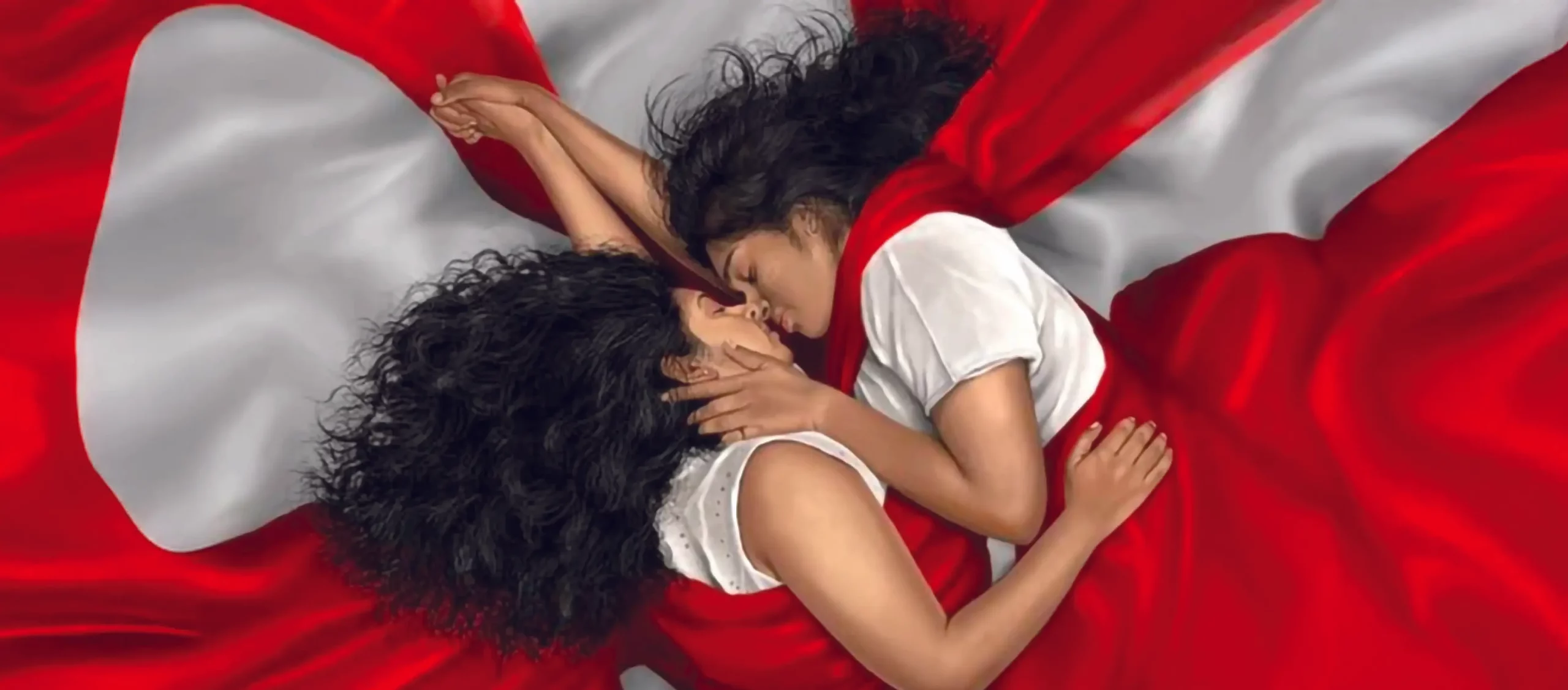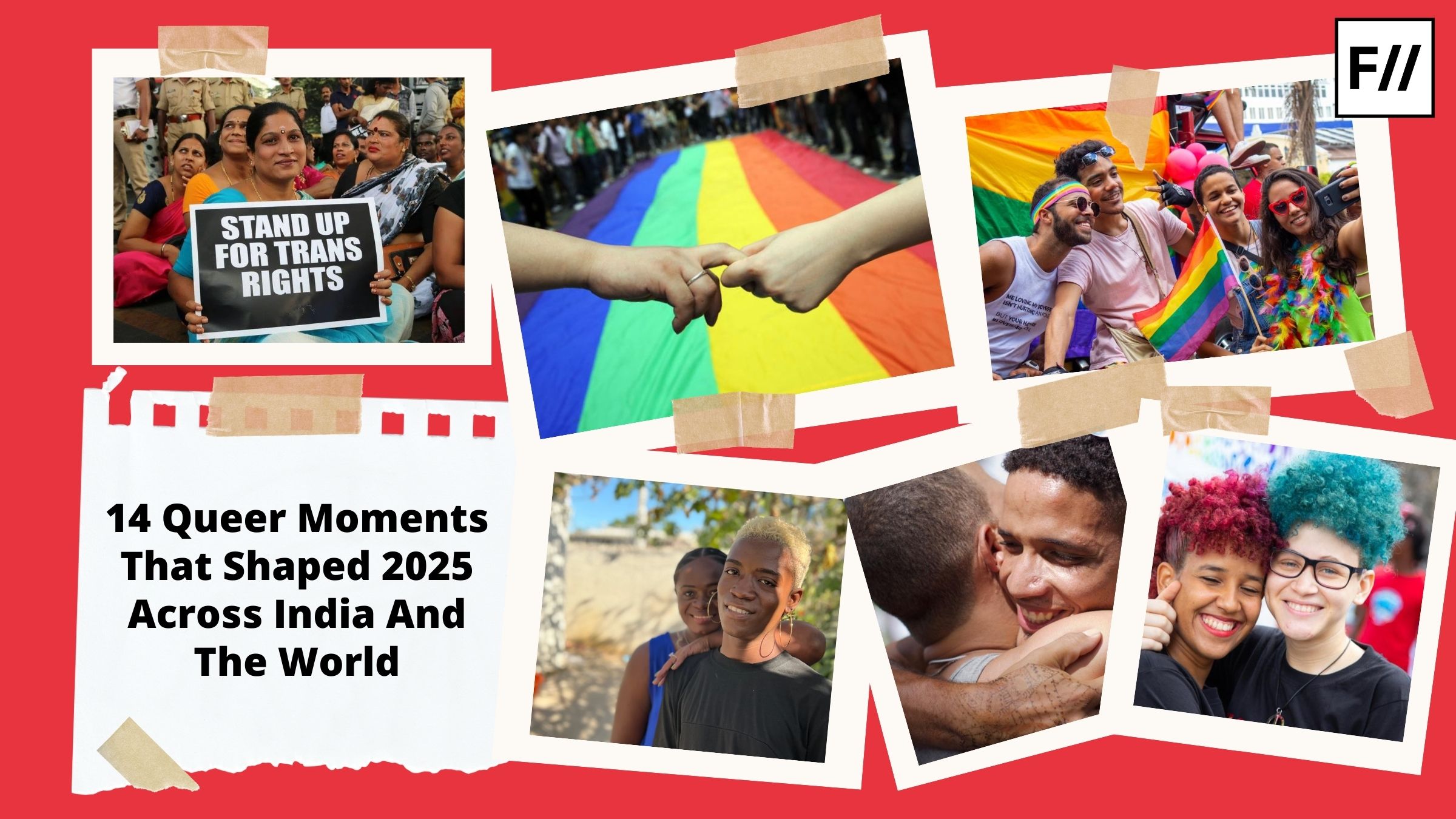There are few things more confusing than being told “you’re just confused” when you come out as bisexual. Every single insecurity and fear you’ve ever battled with comes running to the forefront – “Should I not have come out? Are they right? What if I am confused? Oh god, I can’t take this back, how will they treat me now? What if I have to be forced to pick one?” Then, the confusion melts into anger and you want nothing more than to scream: “I’m not confused! This is the least confused I’ve ever been!”
Those are the split-second emotions that flood the brains of most bi people when they decide to tell the world what they identify as. Of course, these are just the initial turbulent emotions that tag along with most coming out stories. What follows for weeks, months, and even years after are the leers, labels and misconceptions.
To straight people, I’m a liar. To them, claiming to be bisexual is just an excuse for acting promiscuously, a “more polite” way of saying “slut”. Surely, I just need an excuse to bed as many people as I can lay my eyes on and have it be socially acceptable (despite the major gaping fact that neither LGBTQ people nor sexually liberated women are socially acceptable).
That HAS to be the only plausible explanation for me “widening my horizons” and “expanding the pool I choose to dip into”. Filled with thinly veiled disgust, they write me off as a woman who has let herself become far “too liberal”. To them, it would seem, the effect of the West contributes to how my mind, heart and body feel.
But that is not the only category of biphobia I face from straight people. There are those who think that being bisexual automatically makes me public property – a struggle I already face by virtue of being a woman. Somehow, my sexuality equates to an open invitation from anything that breathes – from straight men who only wish to make me a product for their male gaze, to straight women who will think of me nothing beyond a “lesbian phase” (extremely offensive to bi women and lesbians alike), to couples who want to use me as a sex toy to “spice up” their relationship and then discard.
To straight people, I’m a liar.
I’ve heard “So, does that mean you’d be interested in a threesome?” as a more common response to my coming out than actual support. In fact, one person even had the audacity to not only ignore me coming out (something I was forced into by being outed), but to congratulate my then-boyfriend instead (as if he had done the hard work of building up the courage to come out) and say to him, “Wow, kya lucky hai boss, girlfriend is bi so you’re in for some fun.”
If you’re reading this and thinking, wow, that sounds horrific, you’re absolutely right. Blatant biphobia and prejudice in any form are horrible to swallow, even harder to digest. But what’s equally hard to digest is the not-so-blatant biphobia, the kind that’s hidden behind layers of false understanding and singular interpretation of an extremely multifaceted sexual identity.
I am a convenient bisexual to straight people, mainly because I have never been in a public, long-term relationship with a woman, because I hesitate to voice my feelings for women when they’re deeper than mere sexual attraction, because I fit into their comfortable idea that “Okay, let her think she’s bi, because she’s still going to end up with a man”. As long as I behave “straight enough”, my sexuality is something they can swallow like a multivitamin they’re forced to take each morning and then forget about.
But, of course, that only invites the wrath of the LGBTQ community. The moment I start “blending” into mainstream society, I’m no longer allowed in their safe spaces – as if, invisibility and the silencing of my voice is not oppression. As long as I am in a relationship that is same-gendered love, I am “gay enough” for them, but the moment I date a gender different from my own, I no longer qualify.
In fact, one of the most passionate social media debates that is currently taking place is whether bisexual and pansexual people are even allowed to use the word “gay” to describe themselves in reference to same-gender attraction. There is a stigma that we bring along with us, a sense of danger and deceit – as if we are there under false pretences, ready to show the side of us only capable of infidelity, cheating on our partners and the community.
Also Read: Harassed Within The LGBT+ Community: My Survivor Story
Here are the facts. I am no less bisexual depending on my dating history – just as no straight person is less straight or gay person is less gay despite never having dated. For one, dating history has very little to do with one’s sexuality. Compulsory heterosexuality has often times forced lesbians and gay people into dating people from other genders than their own, just as pansexual and bisexual people have often felt the pressure to date within their gender even though they are attracted to multiple people. But even if we dated according to our own comfort, me dating nobody, me dating multiple people doesn’t take away from the fact that I am attracted to multiple genders and THAT is what defines my sexuality.
Second, it is impossible for me to ever be in a “lesbian relationship”, because I am not a lesbian, just as I cannot be in a “heterosexual relationship” because I am not heterosexual. To say I am is mislabeling and is an attempt to try and classify me into a category that makes it comfortable for other people to accept me despite the discomfort it brings me and others like me.
Perhaps the stereotypes and the stigma come from misinformation. Most people seem to be under the false belief that bisexuality is the attraction to two genders – men and women – which leads to the stereotype that bisexuality is inherently transphobic. This extremely binary and cis-sexist belief is the foundation of the stereotypes that bisexual people face from both heterosexuals and the LGBTQ community.
However, the “bi” in bisexuality doesn’t stand for “men” and “women” as genders. It stands for two genders – “own” and “other”, with the “other” standing in as an umbrella term for all genders other than one’s own.
In fact, that is exactly why the bisexual pride flag is blue, pink and purple. Blue signifies other gender attraction, while pink signifies same-gender – and in the middle is the vast, varied ocean of purple where bisexual people lie. Some purple may be more bluish, some purple more pinkish, but it doesn’t cease to be purple. Neither do we.
The moment I start “blending” into mainstream society, I’m no longer allowed in queer safe spaces.
Our experiences are not ignorable and do not make it alright for us to be tossed out from under the rainbow flag when nobody is looking. “Heterosexual privilege” is a false and offensive label to foist on people that are attracted to multiple genders, regardless of who they date at the time. It all comes down to labelling – the attempt to not only fit us into convenient checkboxes but also preventing us from constructing boxes of our own. The problem is that a lot of people think sexuality is performative – and it is to a certain extent. The performative aspect of sexuality is vital to normalise it in heteronormative spaces.
But performance is a personal choice, making it just as reflective. The attempt to encourage bi and pan people to think outside of labels is not only phobic – given that lesbians and gay people don’t hear this advice with a similar tone – but also discouraging to those of us who have wrestled with trying to find a label for an incredibly long time. It derails the focus from helping us become comfortable with ourselves and instead becomes a competition to prove ourselves and live up to an impossible and incorrect standard.
I know I’m not the first bisexual person to have spent years wondering if I was broken, perhaps missing a piece from whatever machinery manufacturer made me. I asked myself multiple times if I was merely a lesbian facing compulsory heterosexuality and forcing herself to like men (which holds true for a lot of lesbians and is not a myth – it was just not the truth in my case). Other times I asked myself if I was just imagining my attraction to the same gender, calling myself every horrible name that I could think of.
Sometimes I told myself to avoid a label because it’s easier explaining the lack of one in a society that’s incredibly presumptive of them anyway. If I didn’t come out as anything then I wouldn’t need to explain myself to anyone – not to the liberal circles in my college, not to the faux-liberal people who were often around me, not to some of the fairly conservative extended family I have (the idea of coming out as anything queer in a Jat family is a scary prospect).
But I like my label. Contrary to popular belief, I am the opposite of confused. I don’t need to “take my time” because I have taken all the time. I don’t need to avoid labelling myself for convenience because it’s anything but convenient to spend every hour of everyday suffocating while hiding a truth that nobody wants to see. I am here, existing, valid in my sexuality just as much as anyone else is. While some straight people might enjoy thinking that I am sitting on a fence, I am happy to tear it down. While some LGBTQ folk might conveniently forget the existence of the ‘B’ in that term, I am happy to sit here and paint it purple.
Also Read: The B In LGBTQIA+: 11 Common Myths On Bisexuality Debunked
Featured Image Credit: Hornet
About the author(s)
Pallavi Varma grew up in Bangalore but spent a lot of her time living in the fantasy worlds she creates for her stories. She has a BA in English Honours from Christ University, an MA in Creative Writing from Cardiff University, along with being a professional binge-reader, kpop-enthusiast and Netflix-watcher.





Loved reading this Pallavi.